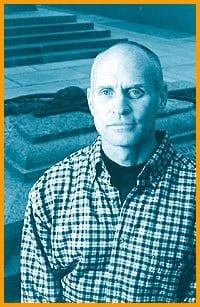The Canadian military was forced to subvert its own anti-gay policies and protect the rights of German gay prisoners of war.
“During World War II over 35,000 German prisoners of war were interned in Canada,” says historian Paul Jackson. “Inside the camps, the prisoners developed a Nazi elite that oversaw internal policing of the prisoners. There were no Jewish prisoners to apply National Socialist standards to, but there were many, many incidences of homosexuality.
“In Fredericton on Dec 6, 1943, Canadian troops were mobilized to quell a riot that ensued when the Nazi elite beat and tried to evict 22 fellow prisoners identified as gay,” he says.
Jackson’s research – homosexuality in the Canadian military during World War II – has led him to court martial proceedings, personnel records, suicide reports and interviews with gay ex POWs and veterans.
“Detailed court martial proceedings describe how the Department Of National Defence prosecuted dozens of German prisoners of war [for assaulting gay prison mates], citing ‘conduct to the prejudice of good order and military discipline’ as the reason.
“Ironically, the same reason was given for court martialling and prosecuting homosexual Canadian soldiers.”
Jackson argues that the reasons for this double standard were both practical and psychological.
“The Canadian military saw itself as a masculine organization. In a World War II framework the idea of a masculine homosexual was not possible. Therefore gays in the ranks were seen as a moral threat to masculinity.”
On the other hand, Canadian authorities were not concerned about the homosexual threat to Germany’s macho image and were more interested in maintaining order in the camps than persecuting foreign queers.
Even though homosexuality was seen as a moral threat to the Canadian military, Jackson’s research shows that homosexual behaviour was endemic during World War II and rarely disciplined.
“In general soldiers in that period had a much looser attitude towards homosexuality than the society at large. Most gay behaviour was let off with a nudge, nudge, wink, wink.”
After an extensive study of records of court martial proceedings, Jackson concluded that homosexuality was usually only prosecuted in that era if the matter had already become public and the military was forced to reprimand personnel in order to save face.
“Among the veterans I interviewed there were many who came out to themselves during the war and managed to have a positive experience.”
Despite the wealth of material Jackson has unearthed, there is little written on the topic in either Canadian or German military histories.
“Studies of prisoners of war,” he says, “in common with almost all other military histories, are either silent regarding the regulation of homosexuality, or else downplay or deny its existence.”
Jackson is a grad student at Queen’s University in Kingston. He has taught history at Queen’s, Carleton University and the Royal Canadian Military College.
He’s at work on a book called The Prejudice Of Good Order.

 Why you can trust Xtra
Why you can trust Xtra


